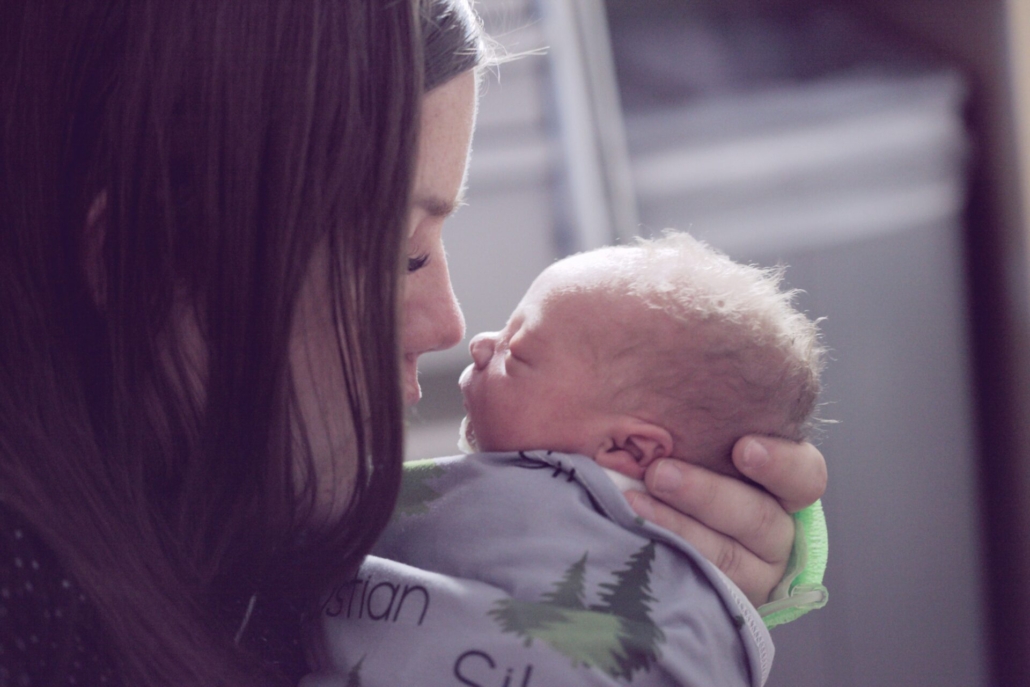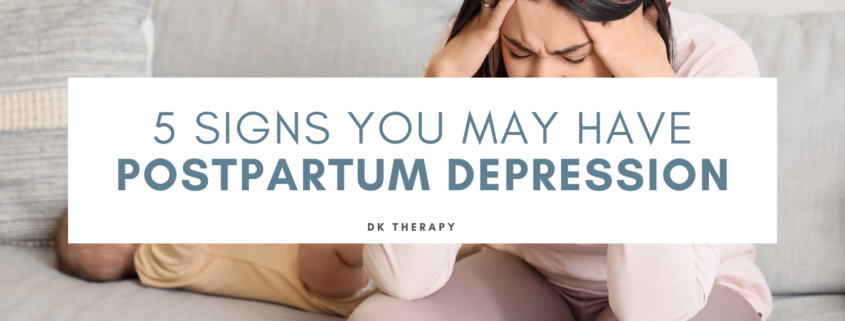5 Signs You May Have Postpartum Depression
Pregnancy and giving birth are among the most demanding biological processes a person can experience. Because so much happens when bringing new life into the world, it’s no wonder that many new parents struggle with complicated feelings after the birth of a baby.
Postpartum depression (PPD) is a serious mental health condition that affects many new mothers, and sometimes fathers, after childbirth. Because the hormonal changes that take place during and after having a baby can be a lot to deal with, it’s important to recognize the signs of this condition. This way, new parents can seek the support and treatment they need early on.
Here are five common signs you may have postpartum depression.

1. Persistent Sadness or Hopelessness
Feeling down or experiencing occasional sadness is normal for new parents, especially when considering the stress of caring for a newborn and the significant disruption in a new parent’s schedule. However, if these feelings last for more than a couple of weeks and they seem overwhelming, postpartum depression may be worth looking into.
2. Severe Mood Swings
It’s natural to have mood swings after giving birth, especially because your mind and body are trying to fall into a brand-new life stage. However, severe or uncontrollable mood swings that impact your daily life are a red flag. If you find yourself crying for no apparent reason, feeling irritable or angry, or having intense episodes of anxiety, don’t ignore them. It may be time to reach out for help.
3. Loss of Interest in Activities
One of the key signs of postpartum depression is a loss of interest or joy in activities you once found happiness in. In some cases, this lack of interest can extend to an aversion to your baby, which makes caregiving activities incredibly challenging.
Of course, no new parent wants to experience these feelings, and their existence can lead to guilt and feelings of inadequacy as a parent. It’s important to remember, though, YOU are not doing anything wrong. You can’t control how you’re feeling, and signs of postpartum depression are nothing to be ashamed of. You may need professional help, and nothing about that makes you a bad parent.
4. Changes in Sleep and Appetite
Postpartum depression can disrupt your sleep patterns as well as your appetite. New parents typically experience sleep disturbances due to newborn care, but PPD-related sleep issues can be far more pervasive than that. Sleep issues brought on by PPD may include either insomnia or excessive sleeping.
Changes in appetite can follow the same path, with new parents either avoiding food or eating excessively.
5. Difficulty Bonding with Your Baby
One of the hardest components of PPD is the struggle to bond with your baby. You may be feeling emotionally distant or disconnected from your child, which makes it hard to form a loving relationship. Many new parents experience significant guilt or shame when it comes to this issue, but they shouldn’t be ignored.
Postpartum depression can be devastating, but it’s important to understand that the feelings you’re experiencing are not your fault. Seeking help is not a comment on your abilities as a parent, and there’s bravery in admitting that you’re in a tough situation you want out of. In many cases, talking to a therapist or seeking medical attention can help you reduce or even eliminate symptoms of postpartum depression.
Remember, you’ve just undergone a very demanding change in your life, and if you need help dealing with complex emotions, there’s no time like the present. You’re not alone.
If you’re struggling and you’d like to see what therapy can do for you, reach out to DK Therapy at your convenience and schedule an appointment with our office.











